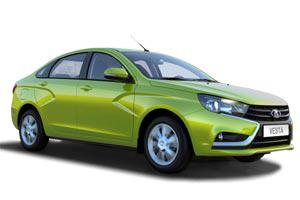Technical specifications
| Clear list | Peugeot 301 (2013-2016) | Hyundai IONIQ |
| Totals | Peugeot 301 (2013-2016) 1.6 × | Hyundai IONIQ 1.6 Hybrid × |
| Mark | Peugeot | Hyundai |
| Model | 301 (2013-2016) 1.6 | IONIQ 1.6 Hybrid |
| Year | 2013-2016 | 2016 |
| Number of doors/seats | 4/5 | 5/5 |
| Body type | Sedan | Hatch |
| Unladen Weight | 1090 (1090) | 1370 |
| Gross Weight Limit | 1524 (1559) | 1870 |
| Top Speed, km/h | 188 (188) | 185 |
| Acceleration 0-100 kph | 9.4 (10.8) | 10.8 |
| Minimum turning radius, m | 5.45 | 5.3 |
| Cargo Volume, min/max, L | 506/1332 | 443/1505 |
| Dimensions specifications, mm | Peugeot 301 (2013-2016) 1.6 × | Hyundai IONIQ 1.6 Hybrid × |
| Length | 4442 | 4470 |
| Width | 1748 | 1820 |
| Height | 1466 | 1450 |
| Wheelbase | 2652 | 2700 |
| Front/rear Track | 1501/1478 | 1563/1577 |
| Ground clearance | 139 | 140 |
| Engine specifications | Peugeot 301 (2013-2016) 1.6 × | Hyundai IONIQ 1.6 Hybrid × |
| Type | petrol Injection | Gasoline direct Injection / electric drive |
| Displacement, cm3 | 1587 | 1580 |
| Compression ratio | 11 | 13 |
| Number and arrangement of cylinders | 4 cylinders, in-line | 4 cylinders, in-line |
| The diameter of the cylinder x stroke, mm | 78.5х82 | 72x97 |
| Number of valves | 16 | 16 |
| Power, hp/rpm | 115/5050 | 105/5700+44 |
| Max torque, Nm/RPM | 150/4000 | 147/4000+170 |
| Transmission specifications | Peugeot 301 (2013-2016) 1.6 × | Hyundai IONIQ 1.6 Hybrid × |
| Gearbox | 5-speed manual / 4-speed automatic | 6-speed automatic |
| Drive Type | Front wheel drive | Front wheel drive |
| Suspension specifications | Peugeot 301 (2013-2016) 1.6 × | Hyundai IONIQ 1.6 Hybrid × |
| Front | MacPherson strut | MacPherson strut |
| Rear | Dependent suspensions | multi-link suspensions |
| Tire Size | 185/65 R15, 195/55 R16 | 195/65 R15, 225/45 R17 |
| Disk | 4x108 ET29 d65.1
| 5x114.3 ET46 d67.1
|
| Brakes specifications | Peugeot 301 (2013-2016) 1.6 × | Hyundai IONIQ 1.6 Hybrid × |
| Front | Ventilated discs | Ventilated discs |
| Rear | Drums | Discs |
| Fuel consumption specifications, L/100 km | Peugeot 301 (2013-2016) 1.6 × | Hyundai IONIQ 1.6 Hybrid × |
| City | 8.8 (10) | 3.6 |
| Highway | 5.3 (5.6) | 3.5 |
| Combined | 6.5 (7.3) | 3.4 |
| Fuel | 95 | 95 |
| Tank, L | 50 | 45 |
| Clear list | Peugeot 301 (2013-2016) | Hyundai IONIQ |














